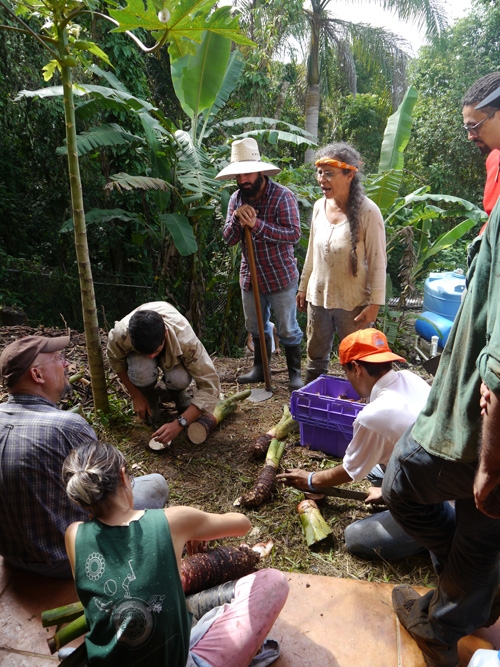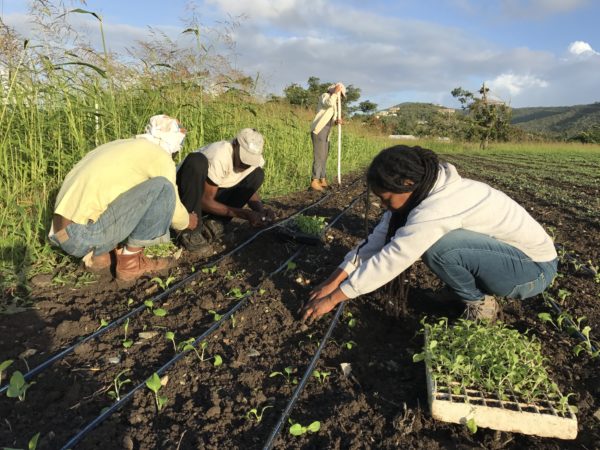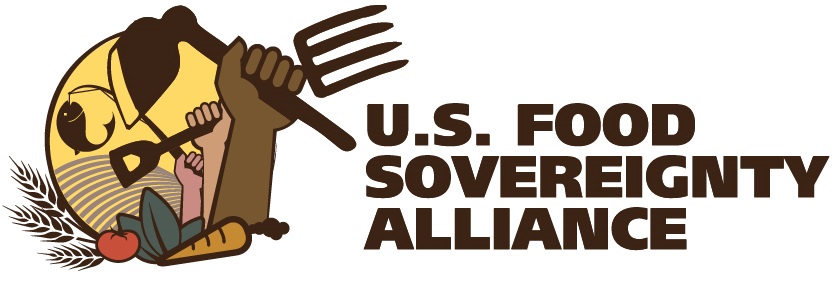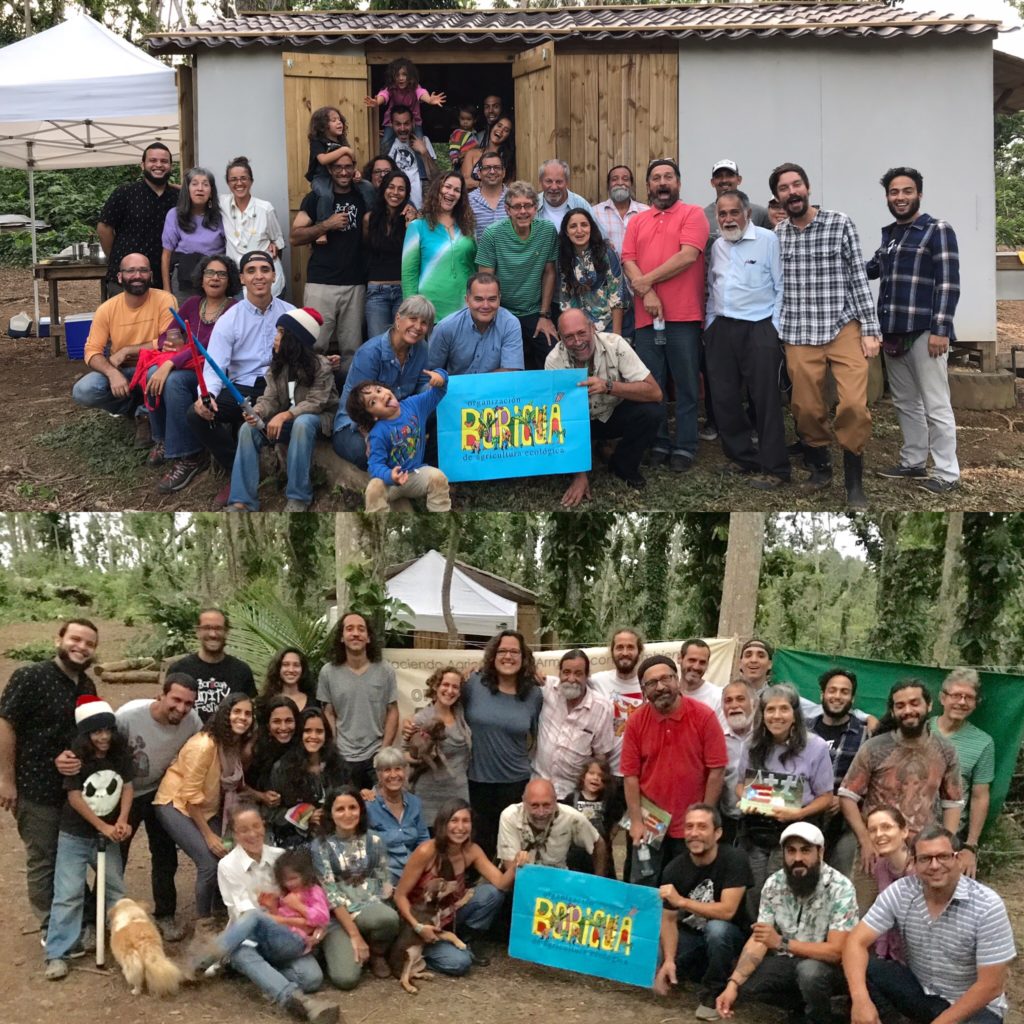Written by Tyler Short of Sustainable Agriculture of Louisville, this post is the third in a three-part series.
Introduction
During the USFSA’s IV National Membership Assembly in Bellingham, WA (October 12–15), the Alliance will award the 2018 Food Sovereignty Prize to Black Mesa Water Coalition and La Organización Boricuá de Agricultura Ecológica de Puerto Rico. The ceremony will occur on Sunday, October 14 (5:30–7:30 PM Pacific). Please follow the USFSA’s Facebook page to view a livestream of the event.
Below, I explore the notion of Just Recovery within the context of climate catastrophe. I highlight the effects of Hurricane Maria in Puerto Rico and the Just Transition-inspired work of activists, farmers, and educators affiliated with Organización Boricuá.
This is the third post in a three-part series. Part One offered a background to Just Transition and Climate Justice Alliance. Part Two analyzed the energy democracy and food sovereignty projects of Black Mesa Water Coalition.
Disasters Result from Natural and Social Forces
“Disaster requires an ability to embrace contradiction… The possibility of paradise hovers on the cusp of coming into being, so much so that it takes powerful forces to keep such a paradise at bay. If paradise now arises in hell, it’s because in the suspension of the usual order and the failure of most systems, we are free to live and act another way.” Source: Solnit, Rebecca. A Paradise Built in Hell: The Extraordinary Communities That Arise in Disaster (2009). pp 7-15.
Organización Boricuá formed almost thirty years ago to enhance the viability and impact of small-scale, ecologically-sound agriculture in Puerto Rico. Their work has inspired young people to actively engage with older generations to restore agroecology in the Caribbean. Under the banner of food sovereignty and in accordance with Just Transition principles, the organization has supported a base of family farmers to develop the capacity of diversified production and increase eaters’ access to healthy local products.
The organization’s efforts intensified after Hurricanes Irma and Maria left more than three million people without access to electricity, clean water, and food. Flooding, structural damage, and debris shut down major ports and roads in coastal areas. Distribution of basic goods and emergency medical supplies were halted. An estimated three thousand people or more have died from the effects of Hurricane Maria.
Leaders of Organización Boricuá argue that the social crises sparked by the hurricanes last year are rooted in colonial domination and economic inequality. During the Solidarity to Solutions Week (Sol2Sol; September 7–13) led by It Takes Roots, Jesús Vázquez, a national coordinator of Organización Boricuá, briefly described the post-Maria situation to me by noting the visible combination of militarization and neglect. He pointed to the influx of disaster capitalists seeking to profit from land grabs, development projects, and the privatization of social services amid growing debt problems.

Organización Boricuá member Magha Garcia of Bosque Jardín Pachamama speaking during the Campamento Agroecológico de Formación Política (Agroecological Encampment for Political Formation) in 2016. Source: Laedlein, Corbin (2017). “Agroecology in Puerto Rico.”
Vázquez also pointed out that, before Maria, Puerto Rico imported more than eighty percent of their consumed food. This figure rose to about ninety-five percent after the hurricane. Vázquez then contrasted two opposing forms of agriculture. He said that conventional farmers lost up to three-quarters of total crop value. Small, biodiverse farms suffered to varying extents, but remarkably less than sites of industrial monocultures of coffee, sugarcane, plantain, and banana plantations. Agroecological farms’ adaptive designs and crop diversity made them considerably more resilient, thus allowing for producer families and their community members to maintain access to root vegetables and other staple foods.
Agroecology Feeds the World and Cools the Planet
How does the conceptual framework of Just Transition apply to the grassroots organizing work of Organización Boricuá in the countryside and cities of Puerto Rico?
In the immediate aftermath of Hurricane Maria and the months that followed, Organización Boricuá anchored the Our Power Puerto Rico Campaign, which Climate Justice Alliance and UPROSE co-orchestrated with strong support from It Takes Roots, Greenpeace, and over twenty other ally organizations. Our Power PR has called for a Just Recovery and Transition away from the extractive economy imposed by the U.S. and multinational corporations. The campaign has focused on collecting, transporting, and distributing “resilient aid” such as water filters, seeds, agricultural tools, satellite phones, solar panels, chargers, radios, stoves, and bicycles with trailers. Multiple USFSA members – including Food First, Grassroots International, and WhyHunger – contributed funding and seeds to augment the capacity of agroecological producers.

Members of Black Dirt Farm Collective participating in a Food Sovereignty Brigade in Puerto Rico. Source: Food First (2018). “Puerto Rican EcoFarms after María.”
Our Power PR amplified the Food Sovereignty Brigades that Organización Boricuá launched in solidarity with peasant families after Hurricane Maria. The organization spearheaded farmer and farmworker check-ins, and they mobilized dozens of urban and rural peoples to assist with repairing damaged fields and infrastructure. Recognizing political education as a fundamental aspect of historical struggle, Organización Boricuá facilitated dialogue about the food sovereignty movement and the practice, science, and political project of agroecology. The brigades reinforced mutual aid networks and reproduced the farmer-to-farmer dynamic of sharing local and ancestral knowledges.
Aligned with each of CJA’s six meta-strategies to achieve a Just Transition, Organización Boricuá upholds the principle of grassroots internationalism (Build the Bigger We) by functioning as part of CJA as well as the global peasant movement La Via Campesina. Members of the organization resist agribusiness (Fight the Bad) and orchestrate on-the-ground actionsoriented toward creating a regenerative and autonomous economy, such as urban and rural farming, (Build the New). They bring agrarian visions of climate and social justice to the forefront of the climate debate via communications with media allies, the public, and elected officials (Change the Story). Organización Boricuá calls for divestment from the extractive economy and the channeling of capital into community-based and collectively-determined solutions (Move the Money). Furthermore, the organization advocates for policy reform, coordinates marketing of local produce, and facilitates an agroecological certification program (Change the Rules).





One thought on “Food Sovereignty and Energy Democracy in Just Transitions: Part 3”
Comments are closed.